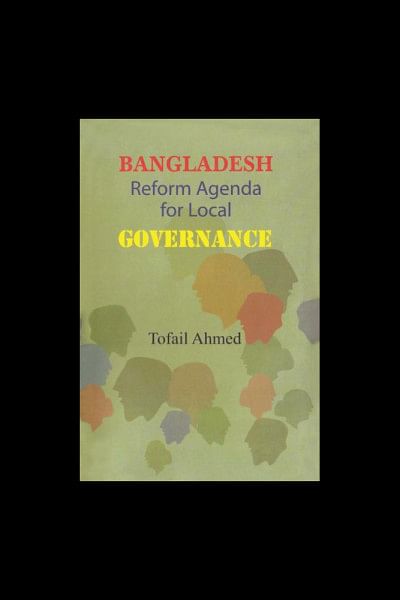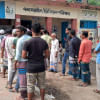Bangladesh: Reform Agenda for Local Governance

Local government is a constitutionally mandated system in our country. Article 59 of our Constitution calls for elected local government bodies at each administrative unit. According to our Constitution, there must be elected bodies at each rural (Zila, Upazila and Union Parishads) and urban level (City corporations and Paurashavas) administrative unit to ensure a democratic system in the country.
Article 59 of our Constitution mandates the local bodies the function of 'the preparation and implementation of plans relating to public services and economic development.'Despite mandating such important roles, our local government institutions are involved in very limited activities. For example, the elected representatives of Union Parishads, the biggest local bodies closest to the door-steps of the people, perform rather routine functions. They spend most of their time on (a) conducting salish(mediation of disputes), (b) building some infrastructure, and (c) distributing social safety net schemes. These activities make limited differences in the lives of the people. Professor Tofail Ahmed, the foremost local government expert of Bangladesh, sought to remedy this void in his new book by proposing a package of reform for our local government system. 'The LGIs,' he argued, 'have immense potential to play a more effective role in accelerating economic and social development, especially in sustainable poverty reduction and in achieving the national goals in different social and economic sectors such as education, health, nutrition, population, water and sanitation, agriculture, dissemination and adoption of technology towards Bangladesh's journey in becoming a middle income country within the stipulated time' (pp. 20-21).
This is a rather small book, with five chapters and 142 pages. It begins with framing the issues and problems (Chapter 1), and then goes into strategic issues, such as local economic development, service delivery, local governance and rural-urban interface (Chapter2). Next Chapter (5) reviews four policy documents – Vision 2021, the 2008 election manifesto of Awami League, the perspective plan (2010-20) and sixth five-year plan – to set the stage for the proposed reform package. The actual reform package is outlined in Chapter 4, which constitutes the heart of the book. The book ends with a conclusion (Chapter 5), which includes some recommendations and an implementation matrix.
The reform package focuses on institutional, functional and financial aspects of LGI. Institutional reform includes a proposed 'framework law,' which recommends the parliamentary system in LGI with indirect elections as opposed to the present system of direct elections for all powerful mayors/chairmen.The electoral reform includes a proposal to adopt a rotational system of representation for reserved seats for women. Professor Ahmed also argues for constitutional reform for streamlining the functions of LGIs and updating and modernizing the arcane and often contradictory legal framework prevailing in our local government system.
Suggested functional reforms include re-organization of field administration and functional vis-a-vis expenditure assignment. Financial reforms focus on LGI finances and the need for revenue transfer and tax sharing. The reform package also includes a proposal to integrate national and local plans, requiring devolution of financial resources. These are much needed and much talked about reforms, and hardly anyone will argue against them. Professor Tofail Ahmed deserves thanks for clearly articulating and integrating the reform ideas into a package and inviting others to contribute to the discourse to further illuminate them.
It should be noted that while the reform of the local government is necessary for overcoming the prevailing governance crisis in the country, it is not sufficient for moving the country forward at a rapid rate. For Bangladesh to become a middle income country in the shortest possible time, we need reform of the field/local administration along with the local government reform. In fact, both must be done simultaneously to create an integrated set up under a single command, as is mandated by Article 59 of our Constitution.
Professor Ahmed dealt with the issue of reforming the field administration in the book (pp. 62-68) and raised the important issue of creating appropriate job descriptions for the DC and the UNO. He questioned the justification of continuing the Division as a field administrative unit, which now functions more like a 'post office'.
The proposed reforms are much needed and they should be implemented without delays. However, getting the benefits of reforms will require changing our political culture. For example, changing the electoral system of LGI to a parliamentary form should not be viewed as panacea, and such a change could even trigger horse-trading and instability in the system unless all stakeholders abide by the democratic rules of the game. Above all, this will require a guarantee of free and fair elections to reflect the consent of the voters, which could become a far cry given our experiences with recent elections.
The reform package, which would change the systems and processes, in order to be effective, should also be linked to capacity building of LGI representatives. Fortunately, Professor Ahmed delves into the capacity building issue in the book. The capacity building initiatives must focus both on enhancing skills and capability, which would in turn depend on motivation and mindset changes of individual agencies. In other words, to be effective in changing the lives and livelihood of the citizens, capacity development initiatives of elected representatives, encompassing both skills development and mindset changes, must be accompanied by reforms. The reforms will clearly create an enabling environment for the elected leaders to succeed.
Appropriate capacity building of elected representatives along systemic reforms may prepare the LGIs to embark on activities to reach their potential to improve the socio-economic conditions of the citizens. However, experiences show that they may still need a pressure group to actually induce them to plunge into the desired activities. This may require a community level organized social force or local civil society. Our own work demonstrate that when a local civil society awakens and mobilises the community, while holding the LGIs to account, better lives for citizens begin to happen because of greater effectiveness of those institutions. In other words, effectiveness of LGIs depend not on their reforms, nor on their enhanced capacity alone, but also on the effectiveness of the ground level civil society, which performs the role of watch-dog as well as mobilises the community.
Professor Tofail Ahmed wrote an important book, which should provide important guidelines for practitioners. However, it could become a bible for policymakers interested in reforms. I hope Professor Ahmed will take the initiative to publish a Bangla version of the book.
The reviewer is Secretary, SHUJAN.

 For all latest news, follow The Daily Star's Google News channel.
For all latest news, follow The Daily Star's Google News channel. 







Comments